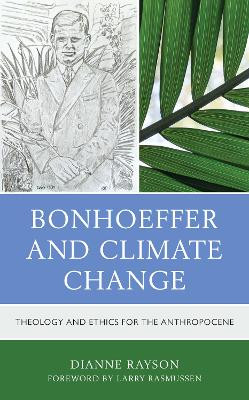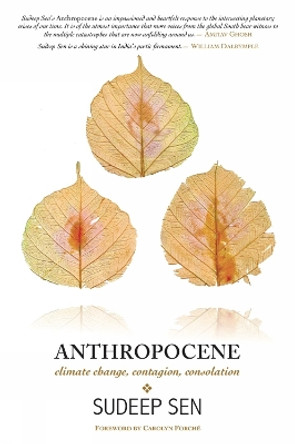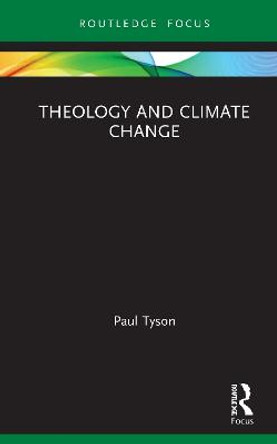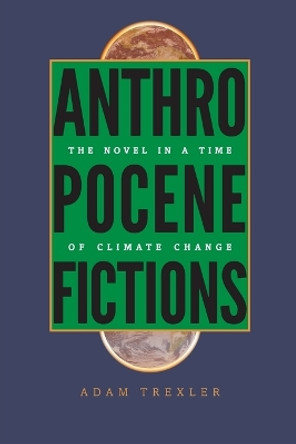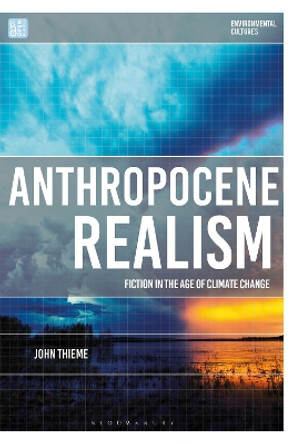Description
What is the place of theology in the public discourse around anthropogenic climate change? How do we understand the human relationship to Earth and the ecology of which we are a part? How can we account for the human attempt to dominate nature and the devastation we have caused to our own home?
Dianne Rayson addresses these questions. She uses the creation theology of Dietrich Bonhoeffer to examine what it means to be human in the post-Holocene age. Employing a range of Bonhoeffer's texts, Rayson posits that Bonhoeffer's Christological theology and this-worldly ethical orientation provide the tools for an Earthly Christianity. She responds to Bonhoeffer's question, "who actually is Jesus Christ, for us, today?" and proposes a Bonhoefferian ecoethic.
About the Author
Dianne Rayson lectures in several Australian universities following a career in public health and social policy in Australia and the Pacific.
Reviews
Dianne Rayson's constructive use of Dietrich Bonhoeffer's theology to articulate an ecoethic and ecotheology is precisely what the world needs. She explains that catastrophic climate change, ushered in by humans, is looming and that changing course requires both individual and communal conviction and moral courage. Rayson's careful and creative use of Bonhoeffer's work allows her to make a compelling case for us - for humans - to take responsibility for earth, to embrace an "Earthly Christianity." The call is urgent.
-- Lori Brandt Hale, Augsburg UniversityAn important and rich theological contribution to the pressing climate concerns in the epoch of the Anthropocene. Dianne P. Rayson explores Dietrich Bonhoeffer's Christological ethic to develop a deep relational response to the unprecedented ecological challenges of the current age. The spiritual, moral, and theological richness of Rayson's book gives the reader a new ground for raising the question, what it means to speak of an "earthly Christianity" today.
-- Ulrik Nissen, Aarhus UniversityIn this timely book, Dianne Rayson combines a keen sense of place, theological acumen and a deep concern for the Earth and our common future with a thorough and illuminating engagement with the theology of Dietrich Bonhoeffer. The result is a ground-breaking work that proposes an "Earthly Christianity" as antidote to harmful theologies of domination. This beautifully written piece of scholarship provides a well-grounded and empowering theological response to the urgent challenges posed by climate disruption. It deserves to be read and discussed widely!
-- Robert Vosloo, Stellenbosch UniversityFor the past fifty years, eco-theologians have rightly maintained that a significant barrier to a Christian ecological ethic are theologies of domination, and they have provided what at times amounts to devastating critiques of the tradition. The brilliance of Rayson's eco-theology and eco-ethic is that it offers an entry point for Christians into this conversation that is both familiar and challenging: the person and work of Jesus Christ. Rooted in Bonhoeffer's expansive understanding of Christology, Rayson turns our attention to the One who in becoming a creature established divine immanence within creation; who, through the reconciliation of all things, beckons us to profoundly love the earth upon which God's kingdom comes; and, out of that love, calls us to be the creatures we were created to be - to act responsibly, combat climate change, and, in doing so, live in right relationship with all of creation.
-- Jennifer M. McBride, McCormick Theological Seminary and President, International Bonhoeffer Society, English Language SectionBook Information
ISBN 9781978701830
Author Dianne Rayson
Format Hardback
Page Count 306
Imprint Lexington Books/Fortress Academic
Publisher Rowman & Littlefield
Weight(grams) 662g
Dimensions(mm) 228mm * 164mm * 25mm


